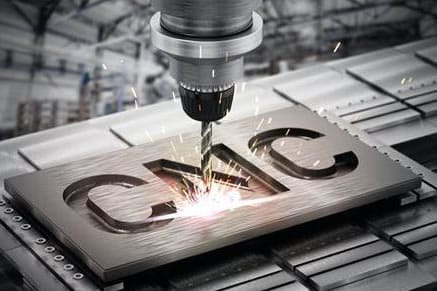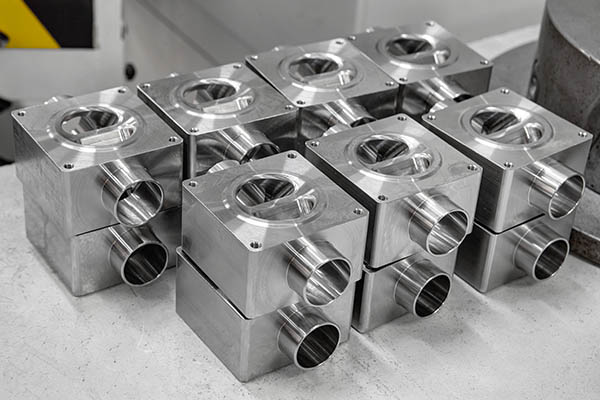CNC Milling Services: The Spine of Fashionable Precision Manufacturing
CNC Milling Services: The Spine of Fashionable Precision Manufacturing
Blog Article
CNC Machining, or Computer Numerical Control machining, has changed the face of manufacturing through bringing precision effectiveness, efficiency, as well as automation to the manufacturing process. The technology makes use of computer-controlled machines to form, cut and make intricate pieces as well as components made from various materials like metal, plastic, wood, and other composites. Automating several of the steps that previously required human intervention, CNC machining has significantly improved the accuracy and speed of manufacturing. It has made essential in fields like aerospace, automotive as well as medical, electronics, and. Incorporating computers into CNC machining equipment has created opportunities for the creation of complex and accurate components. This has improved both the speed and quality of manufacturing.
One of the most significant advantages of CNC Machining is the capacity to create complex and intricate parts that are extremely precise. Contrary to manual machining where precision is mostly dependent upon the skills of the operator CNC machines adhere to programmed guidelines with a high degree of precision. These instructions in digital format, usually created through CAD (Computer-Aided Design) software, permit manufacturers to produce parts with the precision of a small amount of microns. This degree of precision is critical in industries like aerospace and medical device manufacturing, where even one tiny deviation could compromise the safety or performance of the product. Through CNC machining, manufacturers can be sure that their product has the correct specifications and reduces chances of failure and the necessity for expensive rework.
The effectiveness of CNC machining is another key factor in its widespread adoption. Traditional methods of machining require skilled operators to manually control the machinery, adjust settings, and change equipment for every operation. It is not only time-consuming but also prone to human errors. CNC machining, on the contrary, is able to automatize these processes, allowing machines to operate continuously and with little supervision. When the software is installed and the machine is equipped with the material needed and equipment, it is able to perform several processes without interruptions, greatly decreasing the time to produce. CNC machines are also capable working 24/7, making the perfect machines for large-scale production runs. This efficiency level allows manufacturers to meet the tightest deadlines, improve their output as well as reduce the cost of labor and all while ensuring high-quality standards.
CNC machining's versatility is another factor that has made it a cornerstone in modern manufacturing. The technology can be used to make use of a variety of materials, from hard metals such as titanium and stainless steel to softer wood and plastics. This makes CNC machining suitable for producing parts for diverse industries including automotive, aerospace, electronic, medical and consumer products. Additionally, CNC machines can perform a range of operations, like cutting, milling engraving, drilling and even 3D contouring inside a single set-up. Multifunctionality eliminates the requirement to have multiple machines as well as part transfer, further enhancing effectiveness. When it comes to making prototypes or producing large batches of products, CNC machining offers the capability to cater for a wide range of needs in production. To obtain added information please check out www.premiumparts.com/services/cnc-machining
CNC machines are also known for its versatility of the types of materials it is able to work with. From steel, aluminum and titanium to plastics, wood and the composites that CNC machinery can utilize a broad range of different materials in order to make parts to be used in various applications. This flexibility makes CNC machining suitable for a wide range of sectors, each with unique demands for material. In the case of medical, for instance, this industry typically needs components from biocompatible materials like titanium, while the automotive sector uses durable metals, such as steel, for engine parts. Whatever the metal, CNC machines can deliver precision cuts and consistently produced results, ensuring that the finished product is in line with the required performance and endurance requirements.
The ecological impact on the environment CNC operations is an additional aspect worth taking into consideration. Although traditional methods of manufacturing typically result in a substantial quantity of waste materials, CNC machines are known for their high efficiency. By precisely cutting and shaping material, CNC machining minimizes waste and reduces both the cost of materials and the environmental impact. In addition, automation in CNC machines helps reduce energy use as compared to manual machining. The majority of the modern CNC machines are built using sustainability in mind. making use of energy-efficient systems and motors for further reducing their carbon footprint. This means that CNC machineries an eco-friendly choice for companies looking to reduce waste and conserve resources.